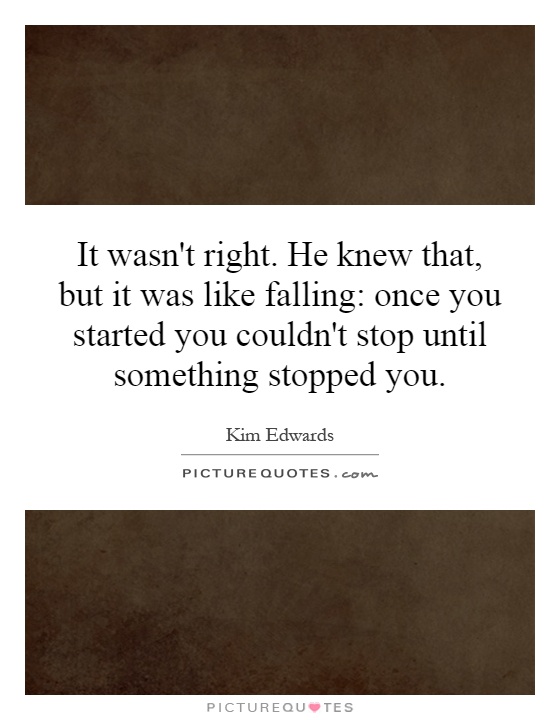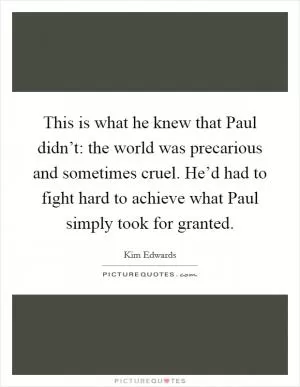It wasn't right. He knew that, but it was like falling: once you started you couldn't stop until something stopped you

It wasn't right. He knew that, but it was like falling: once you started you couldn't stop until something stopped you
Kim Edwards is a renowned author known for her emotionally charged and thought-provoking novels. Her writing often delves into complex moral dilemmas and the consequences of our actions. The quote, “It wasn't right. He knew that, but it was like falling: once you started you couldn't stop until something stopped you,” perfectly encapsulates the themes present in many of Edwards' works.In her novel, "The Memory Keeper's Daughter," Edwards explores the repercussions of a split-second decision made by a father that alters the course of his family's lives forever. The protagonist, Dr. David Henry, makes the fateful choice to give away his newborn daughter with Down syndrome to a nurse, instead of informing his wife of the baby's existence. This decision sets off a chain of events that ultimately leads to the unraveling of his family and the deep emotional scars left in its wake.
The quote speaks to the idea of being caught in a downward spiral of actions that we know are wrong, but feel powerless to stop. Dr. Henry's initial decision to give away his daughter is driven by fear and a desire to protect his wife from pain, but as the years pass, he becomes consumed by guilt and regret. Like falling, he is unable to halt the progression of events that follow, each one compounding the next until the truth can no longer be hidden.
This theme of inevitability and the inability to escape the consequences of our actions is a recurring motif in Edwards' writing. Her characters often find themselves trapped in a cycle of mistakes and misjudgments, unable to break free until they are forced to confront the truth head-on. The quote serves as a poignant reminder of the power of our choices and the lasting impact they can have on our lives and the lives of those around us.












 Friendship Quotes
Friendship Quotes Love Quotes
Love Quotes Life Quotes
Life Quotes Funny Quotes
Funny Quotes Motivational Quotes
Motivational Quotes Inspirational Quotes
Inspirational Quotes